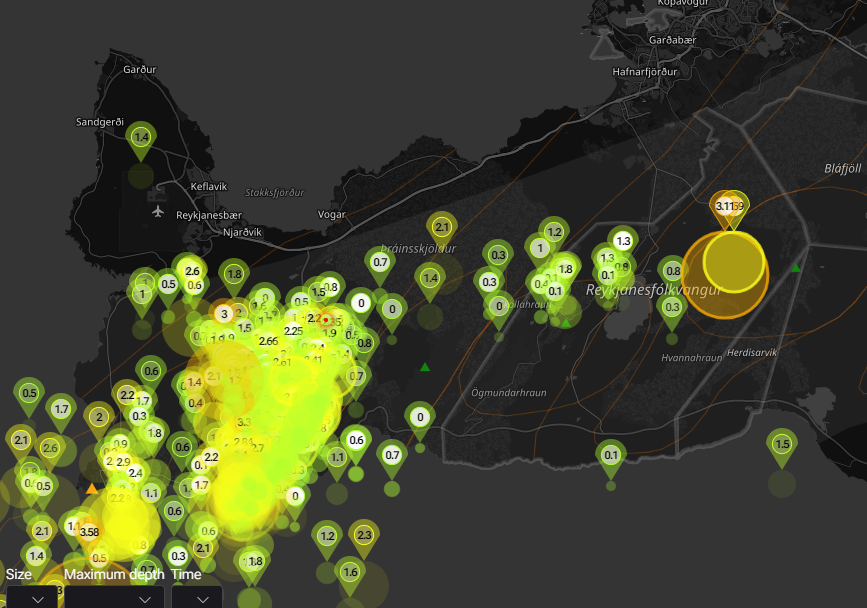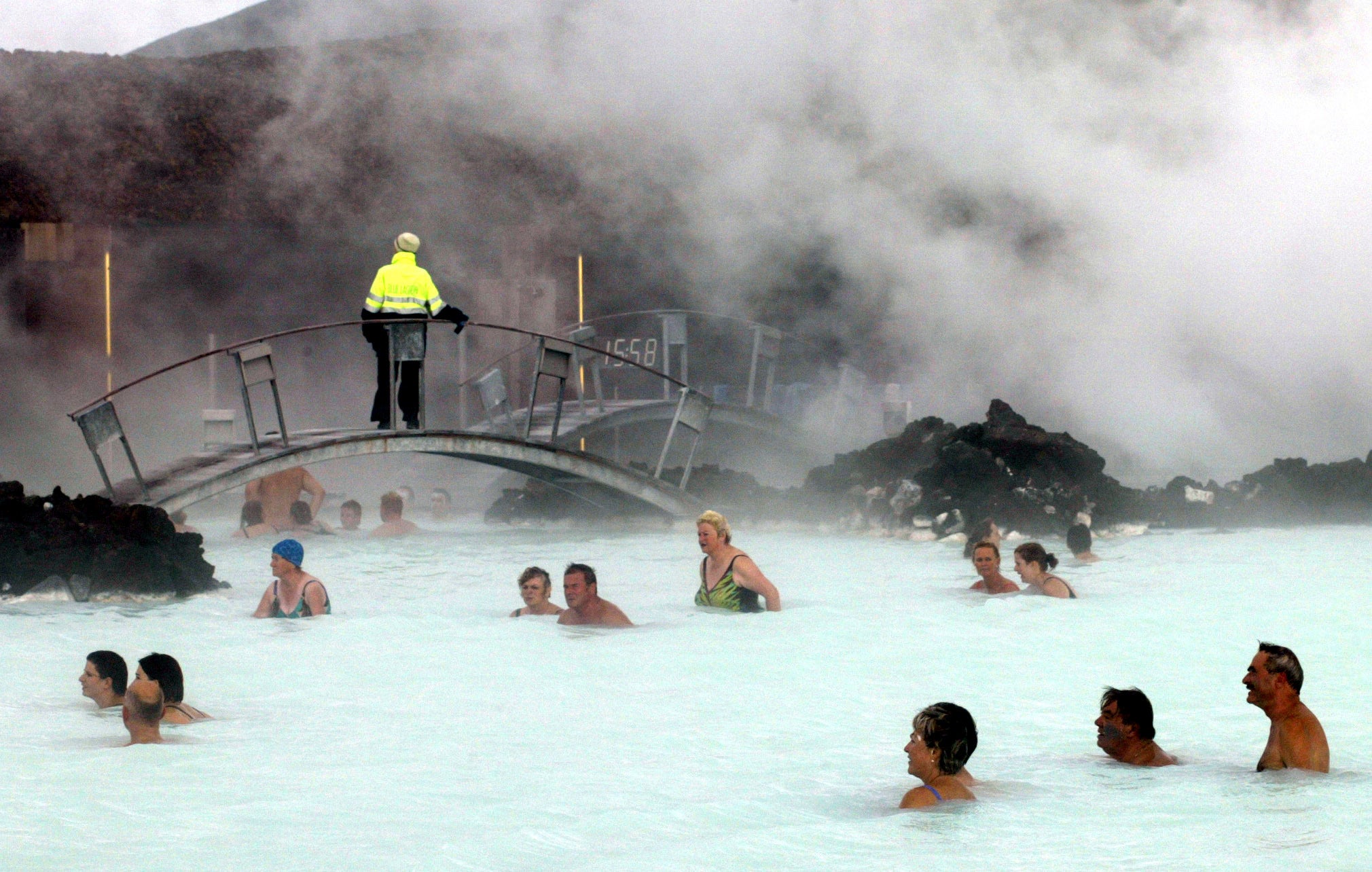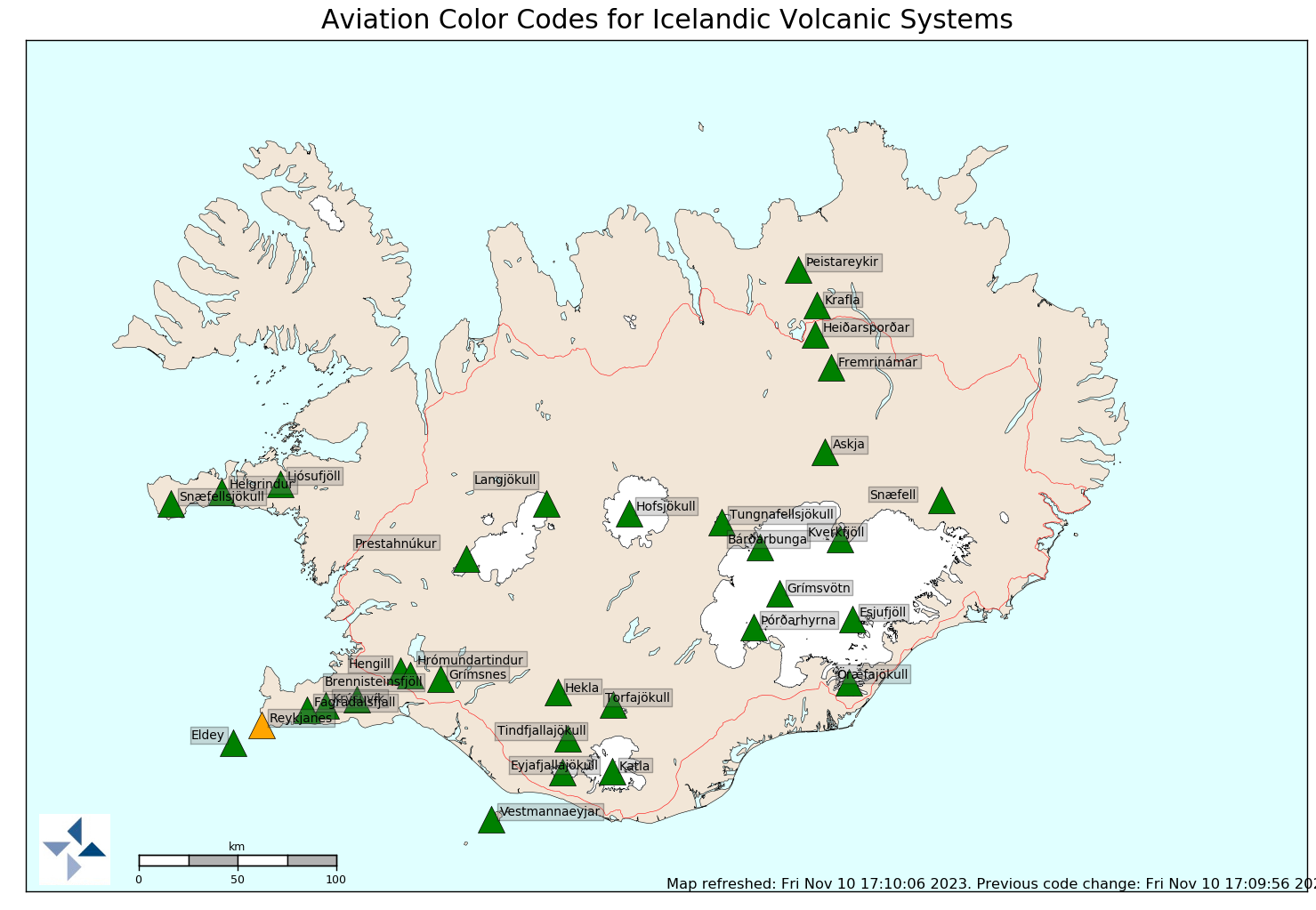Is it safe to travel to Iceland after volcanic eruption? Your rights if you have a holiday booked
The Blue Lagoon has closed as the latest eruption begins
Your support helps us to tell the story
From reproductive rights to climate change to Big Tech, The Independent is on the ground when the story is developing. Whether it's investigating the financials of Elon Musk's pro-Trump PAC or producing our latest documentary, 'The A Word', which shines a light on the American women fighting for reproductive rights, we know how important it is to parse out the facts from the messaging.
At such a critical moment in US history, we need reporters on the ground. Your donation allows us to keep sending journalists to speak to both sides of the story.
The Independent is trusted by Americans across the entire political spectrum. And unlike many other quality news outlets, we choose not to lock Americans out of our reporting and analysis with paywalls. We believe quality journalism should be available to everyone, paid for by those who can afford it.
Your support makes all the difference.The earth is at its most restless in Iceland right now. Since November 2023 the Icelandic authorities have been monitoring seismic activity on the Reykjanes Peninsula, southwest of Reykjavik.
The latest eruption was Sundhnúksgígar at noon on 29 May, with lava shooting 50 metres into the sky. The nearby Blue Lagoon spa was evacuated as a precaution. The tourist attraction will not reopen before 1 June.
The Icelandic Met Office (IMO) reported: “There is still considerable lava fountaining on the main part of the fissure, which is about 2.4 km long.
“There is considerable uncertainty regarding the amount of gases from the eruption site.”
The Foreign Office warns: “Recently there has been a series of volcanic eruptions on the Reykjanes peninsula in south-west Iceland, the latest on 29 May.
“These have affected the town of Grindavik and the area to the north of it. Stay away from this area. All roads to Grindavik and the surrounding area are closed. The likelihood of further eruptions in this location remains high. Check local media for updates and follow the Iceland authorities’ advice on travel to the area.”
The location is around 10 miles southwest of Keflavik airport, a major North Atlantic aviation hub. Flights are continuing to arrive and depart as normal.
These are the key questions and answers on consumer rights.
I am in Iceland. Will I be able to leave?
Yes, assuming the international airport remains open. Isavia, which runs the airport, said: “An eruption has started on the Reykjanes Peninsula.
“Keflavík airport is open and operating in the usual way.”
You may be keen to leave earlier than booked, in order to guarantee your getaway, but at present you will not be able to switch flights without paying a penalty.
The FCDO advises travellers to check the following resources for updates:

But didn’t an Icelandic volcano shut down European aviation for a week?
Yes. Travellers may remember where they were in April 2010, when the Icelandic volcano Eyjafjallajokull erupted. The skies of northern Europe completely closed to passenger aviation for almost a week.
A quarter of a billion cubic metres of volcanic ash was ejected and was carried southeast towards the UK and continental Europe by the breeze. The fear was that volcanic ash could damage jet engines and potentially bring down aircraft. In the biggest shutdown of aviation since the Second World War, 50,000 flights were cancelled and 8 million passengers had their travel plans wrecked.
More than 50,000 flights, with eight million passengers booked to travel, were cancelled.
So far in 2023, though, ash has not been an issue in the current geological outburst.
Thankfully, the circumstances are very different. Eyjafjallajokull erupted with a glacier on top. The addition of melting water meant that the lava cooled very quickly into tiny fragments. These were promptly propelled into the atmosphere to a height of 30,000 feet by the steam produced in the eruption.
The current eruption is not having anything like the same effect. The lava will cool and remain on the ground.
In addition, new guidelines established in the wake of the 2010 eruption allow aircraft to fly if volcanic ash is present in reasonably small quantities. Another Icelandic volcano erupted in 2011, and in that case only 1 per cent of flights in northern Europe were cancelled – rather than 100 per cent on some days in that extraordinary time.

What if I am booked on a package holiday?
Foreign Office advice stops well short of advising against travel to Iceland, meaning holiday companies can continue to operate as normal – with no automatic right to cancel.

Until and unless the Foreign Office warns against travel, the assumption is that everything will go ahead as normal.
The one exception is for holidaymakers who had planned to stay at the Blue Lagoon, an increasingly popular “wellness” destination, with an upmarket hotel on the site.
Only those booked for a stay which cannot now take place have the chance to cancel; if you were hoping to pop in as a day visitor for a steamy stop in the volcanic rock pools, you will need to return at some time in the future.
Can I claim on insurance?
No, unless it is one of the vanishingly rare “cancel for any reason” policies. On standard travel insurance, “disinclination to travel” is not an acceptable reason for a claim.
Would you go to Iceland at the moment?
Yes, I would relish the opportunity. The Icelandic authorities are expert at handling seismic events, with extremely good monitoring and emergency systems in place.
I would book a package holiday, though, knowing that if the earth gets too restless for comfort in the vicinity, I would be able to cancel for a full refund.
It could also be that the new eruption becomes an attraction in its own right, as some have done.

Join our commenting forum
Join thought-provoking conversations, follow other Independent readers and see their replies
Comments